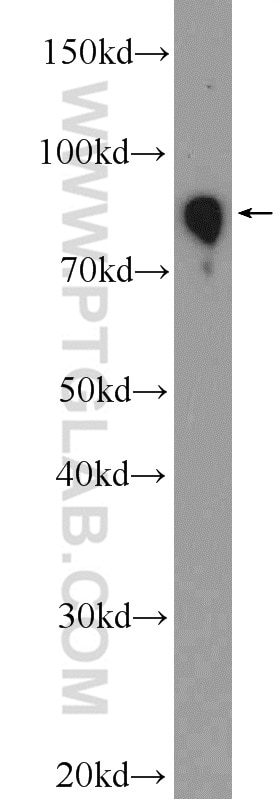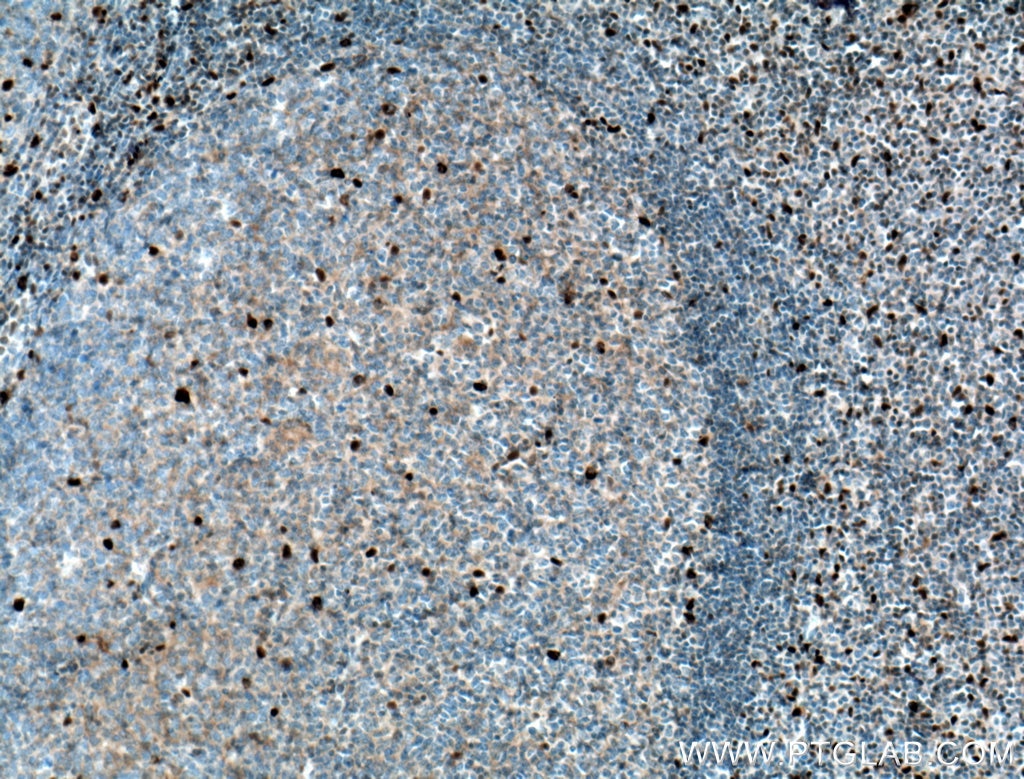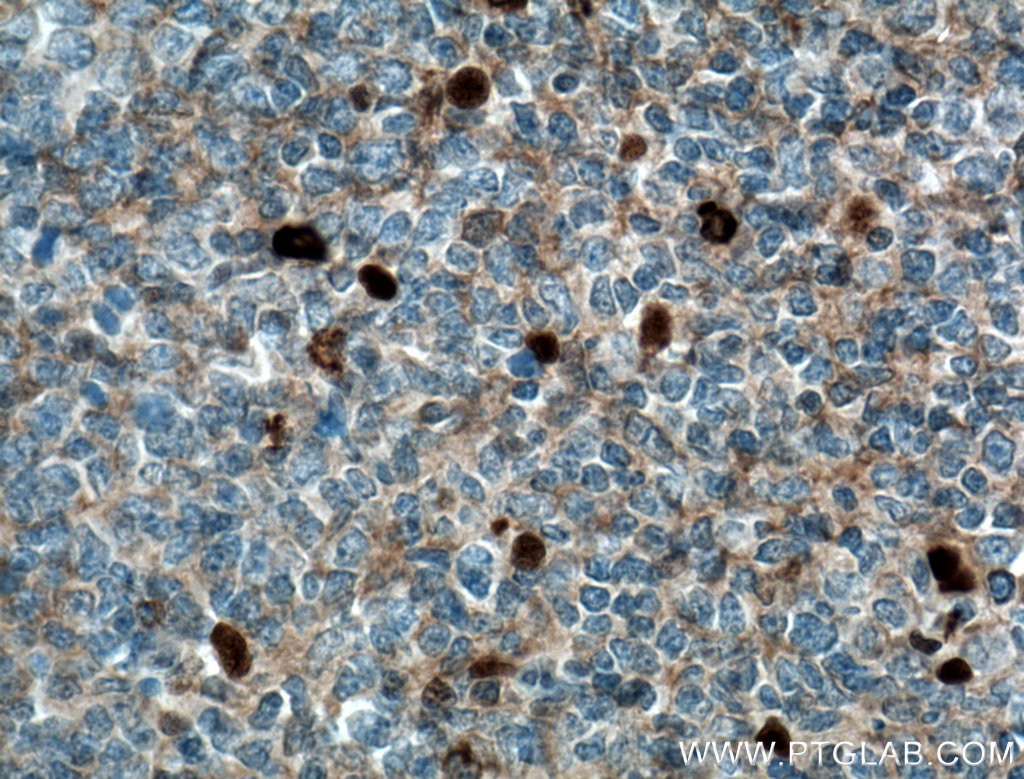Tested Applications
| Positive WB detected in | human plasma tissue |
| Positive IHC detected in | human tonsillitis tissue Note: suggested antigen retrieval with TE buffer pH 9.0; (*) Alternatively, antigen retrieval may be performed with citrate buffer pH 6.0 |
Recommended dilution
| Application | Dilution |
|---|---|
| Western Blot (WB) | WB : 1:500-1:5000 |
| Immunohistochemistry (IHC) | IHC : 1:50-1:500 |
| It is recommended that this reagent should be titrated in each testing system to obtain optimal results. | |
| Sample-dependent, Check data in validation data gallery. | |
Published Applications
| WB | See 1 publications below |
Product Information
11016-1-AP targets human IgM in WB, IHC, ELISA applications and shows reactivity with human samples.
| Tested Reactivity | human |
| Cited Reactivity | human |
| Host / Isotype | Rabbit / IgG |
| Class | Polyclonal |
| Type | Antibody |
| Immunogen | human IgM fusion protein Ag1459 Predict reactive species |
| Full Name | immunoglobulin heavy constant mu |
| Calculated Molecular Weight | 69 kDa |
| Observed Molecular Weight | 75 kDa |
| GenBank Accession Number | BC009851 |
| Gene Symbol | IGHM |
| Gene ID (NCBI) | 3507 |
| RRID | AB_593462 |
| Conjugate | Unconjugated |
| Form | Liquid |
| Purification Method | Antigen affinity purification |
| Storage Buffer | PBS with 0.02% sodium azide and 50% glycerol pH 7.3. |
| Storage Conditions | Store at -20°C. Stable for one year after shipment. Aliquoting is unnecessary for -20oC storage. 20ul sizes contain 0.1% BSA. |
Background Information
This antibody detects the heavy chain of human IgM (~75 kDa).
Protocols
| Product Specific Protocols | |
|---|---|
| WB protocol for human IgM antibody 11016-1-AP | Download protocol |
| IHC protocol for human IgM antibody 11016-1-AP | Download protocol |
| Standard Protocols | |
|---|---|
| Click here to view our Standard Protocols |
Publications
| Species | Application | Title |
|---|---|---|
J Proteomics Tear dynamics testing and quantitative proteomics analysis in patients with chronic renal failure. |







